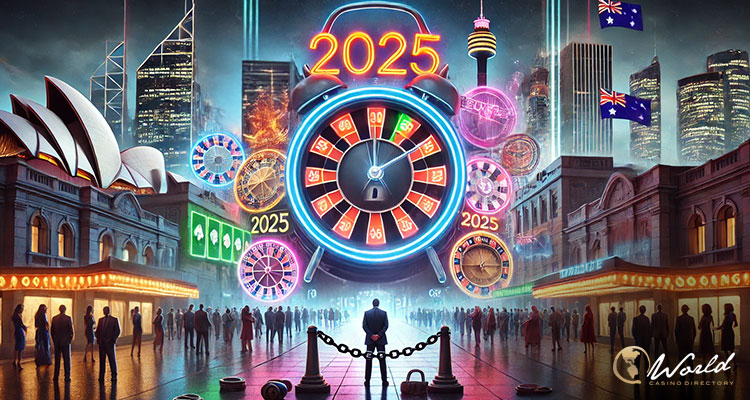Australian gambling advertising reforms shelved as election looms

- by Admin
- November 25, 2024

Australia’s government has shelved proposed gambling advertising reforms, sparking widespread reactions from media entities, social justice advocates, and political opponents.
The decision comes as the government races to address a packed legislative agenda in what could be its final parliamentary sitting week before a potential early election.
On the list is proposed legislation to regulate gambling ads, a move advocated for a year and a half after a parliamentary inquiry recommended a total ban, later supported by many MPs.
Communications Minister Michelle Rowland (pictured) confirmed that no gambling advertising legislation would be introduced this week, despite earlier commitments to deliver reforms by the year’s end.
Rowland cited the complexity of the issue, asserting the need to carefully consider the Murphy Report’s 31 recommendations to avoid poorly designed policies that could yield unintended outcomes.
“The government takes seriously our responsibility to protect Australians, particularly young people, from the harms of online gambling,” said a spokesperson for Rowland. “Since coming to government, we have delivered the most significant online gambling harm reduction initiatives in the last decade.”
However, critics argue that the delay reflects a lack of political will. Shadow Communications Minister David Coleman accused Prime Minister Anthony Albanese of yielding to pressure from media companies, sports leagues, and industry advocates.
Coleman said the lack of action leaves Australians exposed to pervasive gambling advertisements, particularly during live sports broadcasts.
Pointing fingers
The government has offered conflicting explanations for the delay. While one minister cited ongoing consultations, another attributed the holdup to insufficient support in the Senate, despite saying the policy has been finalised.
Sports Minister Anika Wells acknowledged that the financial reliance of sporting organisations played a role in the decision to delay the proposed gambling ad cap, adding that the initiative wasn’t fully developed.
Speaking to reporters, Wells noted that not all stakeholders in the sporting industry supported the proposal, which contributed to the government’s conclusion that the legislation required further development before being introduced.
Meanwhile, Assistant Treasury Minister Andrew Leigh highlighted the inclusion of an advertising blackout period as a win. However, he added the government could not secure enough Senate votes to move forward.
Criticism of the delay has been swift. Independent MP Andrew Wilkie accused the Australian Labor Party of being overly influenced by entities that profit from betting. Senator David Pocock went further, labelling the government’s hesitation as “gutless.”
Social media and gambling: A growing concern
The debate over gambling advertising extends beyond traditional media, with new research shedding light on troubling practices by social media platforms.
A study conducted by the University of Queensland revealed how Facebook targets Australian users with gambling and alcohol advertisements, often exploiting data provided by hundreds of companies.
The study employed an innovative mobile app that allowed participants to collect and analyse targeted ads. It found that Facebook’s algorithm tagged participants with dozens of interests related to alcohol and gambling, leveraging data from 201 alcohol companies and 63 gambling firms.
Collectively, 264 companies shared user data with Facebook’s advertising system, raising alarms over the platform’s opaque targeting practices.
Funded by VicHealth and the Foundation for Alcohol Research and Education, the study highlights the need for regulatory oversight in digital advertising. Advocates argue that the government’s inaction on the matter leaves a significant regulatory gap in addressing these practices.
With the government facing mounting pressure to deliver on its promises, the shelving of the key reforms has drawn criticism from all sides. While the government cites a commitment to thorough policymaking, opponents contend that delays and abandoned initiatives risk eroding public trust.
Should an early election be called, these unresolved issues may become focal points in the campaign, shaping the Labor Party’s prospects at the polls.
Misinformation bill also abandoned
Another controversial initiative to be abandoned is the government’s misinformation bill, which had faced backlash for its perceived overreach.
The proposed law would have granted the Australian Communications and Media Authority (ACMA) sweeping powers to monitor and mandate the removal of content deemed harmful or misleading on social media platforms.
Critics labeled the bill a censorship tool. Bipartisan opposition emerged from the Coalition, cross-benchers, and the Greens to successfully halt its advance.
Greens Senator Sarah Hanson-Young voiced concerns over the bill’s effectiveness and its exemptions for major media organisations. She argued that the legislation would disproportionately empower tech giants and media conglomerates while failing to address the mass dissemination of harmful misinformation.
Rowland acknowledged the lack of support in the Senate. In response, she stated that the government would seek alternative strategies to strengthen democratic institutions, safeguard online users, and uphold freedom of expression.
Proposed measures include stricter regulations against non-consensual sharing of explicit deepfake content, enhancing truth-in-political-advertising laws, and progressing artificial intelligence regulation reforms.
The Latest News
-
November 25, 2024WTA player announces she’s returning at the Australian Open in 2025 and planning to win Grand Slams
-
November 25, 2024Haier Named Official Partner of the Australian Open for 2025-2027
-
November 25, 2024Andy Murray could face awkward Australian Open moment with Novak Djokovic
-
November 25, 2024Anglo American to Sell Australian Coal Business for $3.8 Billion | OilPrice.com
-
November 25, 2024ISPS Handa Australian Open preview: Field, betting odds, tee times and how to watch





